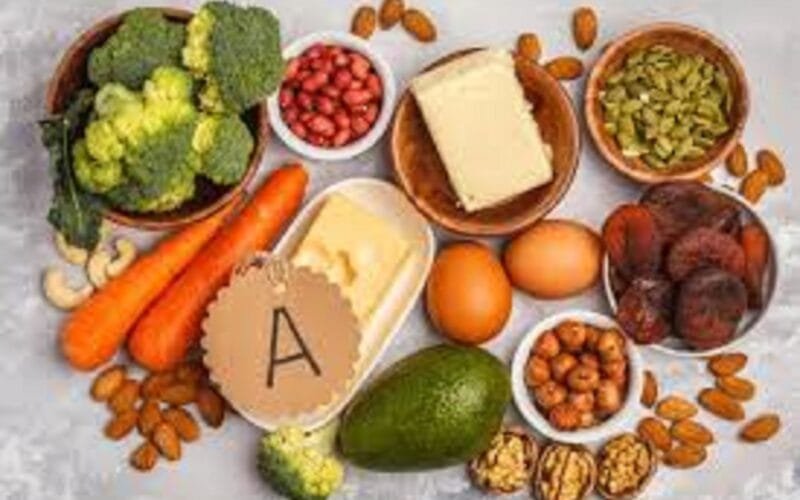The Best Vitamins for Hair Health and their natural sources
Maintaining luscious, strong, and healthy hair goes beyond just using the right shampoos and conditioners. A critical component of hair health is proper nutrition, which is where vitamins come into play. In this comprehensive guide, we’ll delve into the best vitamins for hair health, their benefits, and the top sources to incorporate into your diet to achieve vibrant and resilient hair.
Why Vitamins Are Essential for Hair Health
Vitamins are organic compounds essential for various bodily functions, including hair growth and repair. They contribute to the health of hair follicles, regulate sebum production, and enhance blood circulation to the scalp. A deficiency in specific vitamins can lead to hair thinning, loss, and other issues. Therefore, understanding which vitamins support hair health can help you tailor your diet for optimal results.
The Top Vitamins for Hair Health
1. Vitamin A
Benefits:
Vitamin A is crucial for cell growth, which includes hair cells. It also helps in the production of sebum, an oily substance that keeps the scalp moisturized and supports hair health.
Sources:
- Sweet Potatoes: Rich in beta-carotene, which the body converts into Vitamin A.
- Carrots: Another excellent source of beta-carotene.
- Spinach: Packed with Vitamin A and other beneficial nutrients.
2. Vitamin B Complex
Benefits:
The B vitamins, particularly B7 (Biotin), B5 (Pantothenic Acid), and B12, are vital for hair growth and repair. They help in the creation of red blood cells, which carry oxygen and nutrients to the scalp and hair follicles.
Sources:
- Biotin: Found in eggs, nuts, and seeds.
- Pantothenic Acid: Available in avocados, sweet potatoes, and whole grains.
- B12: Present in animal products such as meat, dairy, and eggs.
3. Vitamin C
Benefits:
Vitamin C is a powerful antioxidant that helps in the production of collagen, a protein that strengthens hair. It also aids in the absorption of iron, another crucial nutrient for hair growth.
Sources:
- Citrus Fruits: Oranges, lemons, and grapefruits are excellent sources.
- Bell Peppers: High in Vitamin C and other antioxidants.
- Kiwi: A nutrient-dense fruit rich in Vitamin C.
4. Vitamin D
Benefits:
Vitamin D plays a role in creating new hair follicles and may help in managing hair loss. It also helps in the regulation of hair growth cycles.
Sources:
- Sunlight: The most natural source of Vitamin D.
- Fatty Fish: Salmon and mackerel are rich in Vitamin D.
- Fortified Foods: Some dairy products and cereals are fortified with Vitamin D.
5. Vitamin E
Benefits:
Vitamin E is known for its antioxidant properties that help reduce oxidative stress on the scalp, thus promoting healthy hair growth.
Sources:
- Nuts and Seeds: Almonds and sunflower seeds are excellent sources.
- Avocados: High in Vitamin E and healthy fats.
- Spinach: Contains Vitamin E along with other essential nutrients.
Additional Nutrients for Hair Health
While vitamins are crucial, other nutrients also play significant roles in maintaining hair health:
Omega-3 Fatty Acids
Omega-3s are essential fats that nourish the hair and support thick, shiny locks. They also reduce inflammation that can contribute to hair loss.
Sources:
- Fatty Fish: Such as salmon, sardines, and mackerel.
- Flaxseeds: Ground flaxseeds or flaxseed oil.
- Chia Seeds: High in omega-3 fatty acids and other nutrients.
Iron
Iron deficiency can lead to hair loss and anemia. Ensuring adequate iron levels supports healthy hair growth.
Sources:
- Red Meat: Beef and lamb are excellent sources.
- Leafy Greens: Spinach and kale provide non-heme iron.
- Legumes: Lentils and chickpeas are rich in iron.
Zinc
Zinc plays a role in hair tissue growth and repair. It also helps maintain the oil glands around hair follicles.
Sources:
- Shellfish: Such as oysters and crab.
- Pumpkin Seeds: High in zinc and other beneficial nutrients.
- Nuts: Almonds and cashews are good sources.
Tips for Optimizing Vitamin Intake for Hair Health
- Balanced Diet: Ensure a varied diet rich in fruits, vegetables, lean proteins, and whole grains to cover all your nutritional needs.
- Supplement Wisely: If you’re unable to meet your vitamin needs through diet alone, consider supplements. However, consult with a healthcare provider before starting any new supplement regimen.
- Stay Hydrated: Proper hydration is essential for overall health, including maintaining healthy hair.
- Avoid Excessive Heat and Chemicals: Protect your hair from damage by avoiding excessive heat and harsh chemicals that can deplete vitamins and nutrients.
Conclusion
Achieving and maintaining healthy hair requires a holistic approach that includes a balanced diet rich in essential vitamins and nutrients. Vitamins A, B complex, C, D, and E, along with other nutrients like omega-3 fatty acids, iron, and zinc, play pivotal roles in promoting hair growth and overall health. By incorporating a variety of these vitamins through natural food sources or supplements, you can support your hair’s strength, shine, and resilience.
Remember, while nutrition plays a significant role, other factors like genetics, lifestyle, and hair care practices also influence hair health. Adopting a comprehensive approach will help you achieve and sustain beautiful, healthy hair.
Thanks for visiting Gymbag4u.com
You may also love reading our following articles. https://gymbag4u.com/the-health-benefits-cautions-of-roasted-chana-chickpeas/ and https://gymbag4u.com/understand-the-power-of-routine-fasting-to-reduce-aging-signs/ and https://gymbag4u.com/burn-fat-fast-with-a-20-minutes-fat-burning-workout/
